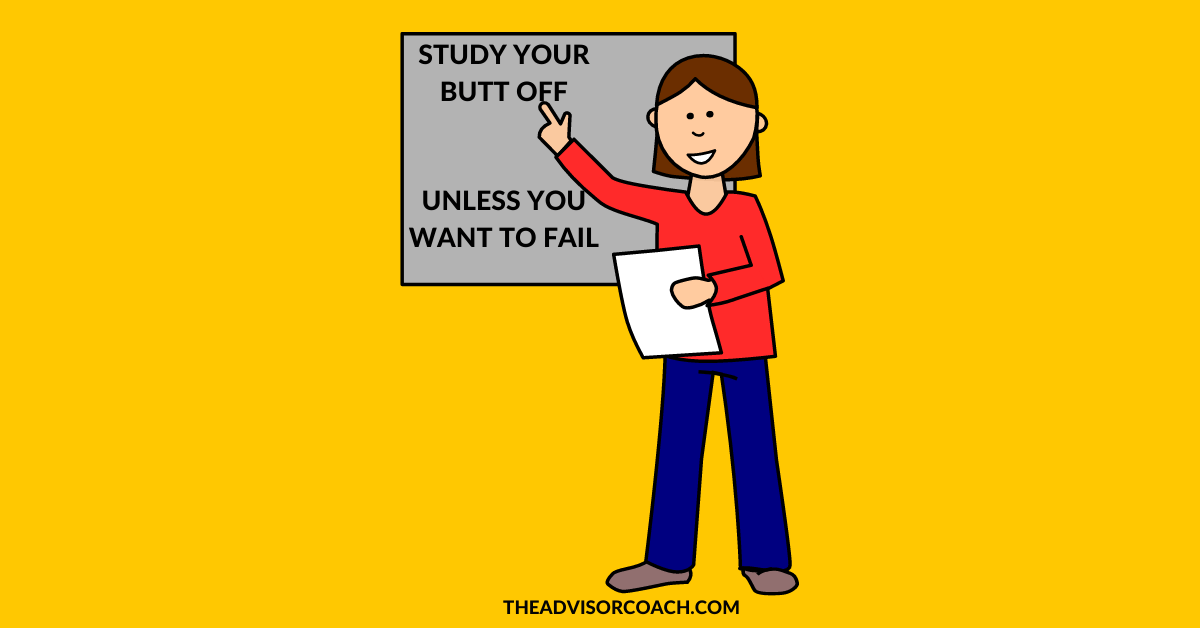Series 7 Study Guide: Practice Questions for the Series 7 ExamThis post may contain affiliate links.
What Is The Series 7 Exam?
In a nutshell, passing the Series 7 exam qualifies you to hold the title of General Securities Registered Representative. This allows you to solicit and sell securities products, including stocks, bonds, options, limited partnerships, and so on.
The Series 7 serves a valuable purpose because it protects the investing public. It ensures that the financial advisors and registered representatives who sell securities have mastered the skills and general knowledge that they need to have to properly serve their clients. The Series 7 exam is a 125-question computer-based exam (meaning you input your answers on a computer) that’s given at different test centers throughout the U.S. It’s administered by FINRA (the Financial Industry Regulatory Authority) and it is 225 minutes long. If you manage to score a 72 or higher, congratulations! You will have passed the exam. ALSO READ: Your First Year as a Financial Advisor How Hard Is The Series 7?
The Series 7 exam is harder than you want it to be but easier than you think it’ll be. If you can keep that thought in your mind, it will serve you well.
If you read varying online forums, you might get the impression that the Series 7 exam is incredibly difficult. While it’s definitely not a cakewalk, it’s not impossible either. After all, thousands of people before you have passed it with flying colors. The biggest determinant of your success will be your ability to prepare, study, and practice the material before the exam itself. The more practice you have, the better. That’s why it’s important to take Series 7 practice exams and answer the practice questions that go along with them. The Series 7 pass rate is only 65%. If you account for the people who take the exam multiple times, it means the first-time pass rate is below this number. However, that’s still good news; CFA exams have an even more dismal pass rate of 46%. Be careful where you get your advice when it comes to the Series 7 exam. Those giving you advice might have taken the Series 7 in the 90s when exam questions were drastically different. The questions have evolved over time, and today they include more of an emphasis on suitability. ALSO READ: Pros and Cons of Being a Financial Advisor How Much Does The Series 7 Exam Cost?
As of April 2019, the Series 7 Exam costs $245.
Do You Need a Sponsor to Take The Series 7? Yes. You obtain sponsorship for the Series 7 exam by being employed at a FINRA member firm or a self-regulatory organization (SRO). After all, you’ll need to pass the Series 7 in order to legally perform certain tasks (like selling securities) as an employee.
This causes a little catch-22; you may have difficulty getting a job at a firm because it requires a Series 7, yet you need a job to get it. One of the ways to get a sponsor is to start surfing the job boards – in many cases, firms who do sponsor will say so right in their job descriptions. Most “assistant” type job titles are willing to sponsor, while those that require several years of experience tend to assume that you already have your Series 7. Of course, you could always make an anonymous phone call and ask if they’ll sponsor you. Another way to find a sponsor for the Series 7 is to network your butt off. You’re most likely to hear about good job leads from other financial services professionals. Go to any events you can find. The connections that you form when networking are the keys to building your career. If you’re caught in this catch-22, be ready to take the Series 7 at any moment, since you don’t know when opportunity will strike. You do this by staying sharp, reading study guides, and taking Series 7 practice questions. Not only will you be able to take the exam as soon as you find a sponsor, but you’ll be knowledgeable during your job interview with them. ALSO READ: A Day In The Life of a Financial Advisor How Should You Prep for The Series 7?
In addition to answering tons of practice questions, here are some tips for passing the Series 7:
What's The Breakdown of the Series 7 Exam?
The Series 7 exam is computerized and closed-book, which means you can’t use any notes. It’s several hours long and is divided into two three-hour sessions. You have to take a mandatory break during the sessions. While you can take bathroom breaks at any time, the clock will continue to tick away. I strongly caution you to skip the diuretic triple espresso latte.
One of the cool things about the Series 7 (if “cool” and “Series 7” can even be used in the same sentence) is that you don’t have to wait weeks to get your score. Right after taking the exam, the system calculates your score and gives you a result. You’ll either see it right on your computer screen or a test center employee will give it to you. The Series 7 exam is structured around five major functions:
You’ll want to answer plenty of practice questions about the following topics:
I can’t stress the importance of using Series 7 practice questions. They will help you gear up for test time and gain the confidence you need to pass. Here are some sample practice questions for you: 1. Investments that move in the opposite direction of the economic cycles are known to be counter-cyclical. Investments that are known to be counter-cyclical include: A) Gold stock B) Utility stock C) Food company stock D) Pharmaceutical stock 2. A corporate bond’s indenture has all of the following EXCEPT: A) The credit rating B) The maturity date C) The name of the trustee D) The coupon rate 3. Joe Smith is a wealthy investor who is in the highest income bracket. He’s looking for an investment that would limit his tax liability and put him on equal footing with investors in low income-tax brackets. Which of the following securities would you most likely recommend? A) CMOs B) High-yield bonds C) Municipal bonds D) Hedge funds 4. The trading volume for some large institutional orders is concealed from the public. What’s this called? A) Fourth market trades B) Dark pools of liquidity C) Third market trades D) A violation 5. When a corporation wants to open a margin account with a broker-dealer, which of the following is required? I. A corporate resolution from the board of directors. II. A copy of the corporation’s trust indenture. III. A copy of the corporation’s charter or by-laws. IV. An agreement that the stock of the corporation will not be traded by the broker-dealer as a market maker. A) I, II B) I, III C) II, IV D) I, II, III, IV Answer Key
Recommended Resources
If you really want to increase the likelihood that you'll pass the Series 7, I STRONGLY recommend you invest in the following resources.
1. Wiley Series 7 Licensing Exam Review 2019 + Test Bank This is literally THE most comprehensive guide to the Series 7 exam in the marketplace. There's nothing better. If I could only have ONE resource, it would be this one. At a whopping 640 pages, it is the mack-daddy of all study guides. Plus, it comes with a test bank. How much better can it get? The only "downside" is that it's kind of expensive. However, if you don't want to break the bank, get the recommended resource #2... 2. Series 7 Exam Secrets Study Guide
This is cheaper than the Wiley Exam Review but it still packs a powerful punch. Ideally, you would get both but the Series 7 Exam Secrets Study Guide is nice because it covers the 5 essential skills necessary to do well on the test, as well as comprehensive reviews covering all of the essential test sections individually. |


